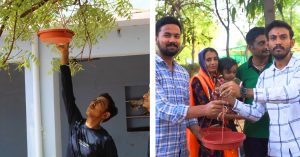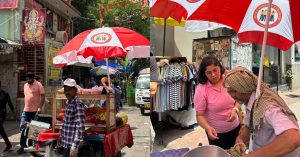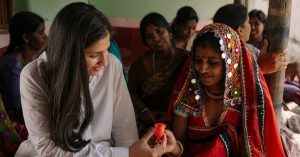You Have The Power to Loan E-Vehicles to Hand Rickshaw Pullers, Thanks to this Unique Idea
When Sunil Shinde, a retired teacher, petitioned to the Supreme Court to allow e-rickshaws in Matheran, he was just trying to help his friends who were hand-rickshaw-pullers. Today, his initiative has turned into a movement made possible by "Rang De', a social peer-to-peer lending platform. Here's how you can help.
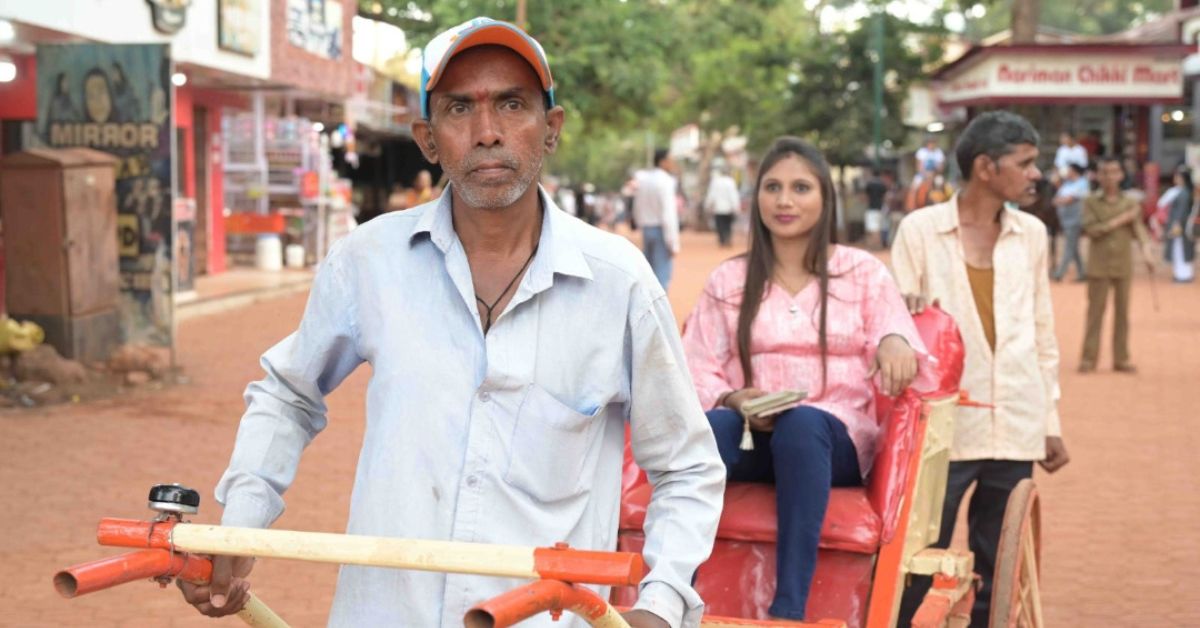
“Do you remember your last trip to Matheran?” Bengaluru-based Ramakrishna NK, who goes by Ram, asks me.
“I remember it vividly,” I tell the co-founder of ‘Rang De’, a social peer-to-peer lending platform in India.
His question has opened a door down memory lane for me. On one of those many school picnics at the Maharashtra hill station, my classmates and I were awed not just by the postcard-worthy landscapes, but also by the fact that these glorious hills were vehicle-free.
A deep dive into this subject led to unearthing the history of Matheran. Its status as an eco-sensitive zone since February 2003 meant ambulances were the only vehicles allowed to ply beyond the point that connected Neral (the town at the base of Matheran) to Dasturi Naka.
Invest in an e-rickshaw and help hand rickshaw pullers today!
And no one could be heard complaining. The famed narrow gauge toy train, obliging horses and hand-drawn carts meant two things — less pollution and great experiences.
Discovered by Hugh Poyntz Malet, the district collector of Thane in May 1850, Matheran was developed as a hill station by Lord Elphinstone, the then Governor of Bombay. It was seen as an ideal getaway where people could head to beat the heat.
Since then its appeal hasn’t dimmed one bit. But while it is easy to get lost in the landscapes dotted with vintage modes of transport, the back-breaking ordeal that the hand-rickshaw-pullers go through every day beckons attention.
And this is what Sunil Shinde, a retired teacher from Matheran, was advocating for in 2019.
Having worked in Mumbai for 30 years, Shinde went back home only to watch his friends engaged in pulling rickshaws. The contrast between their standards of living was evident. In an attempt to do something, Shinde, who had heard about e-rickshaws in Delhi, decided to pitch this as a solution to the Matheran Municipality.
However, he was told that he would have to approach higher authorities. The following years were fraught with court visits and appeals until in 2022, a three-judge bench of the SC conceded to have e-rickshaws in the hill station.
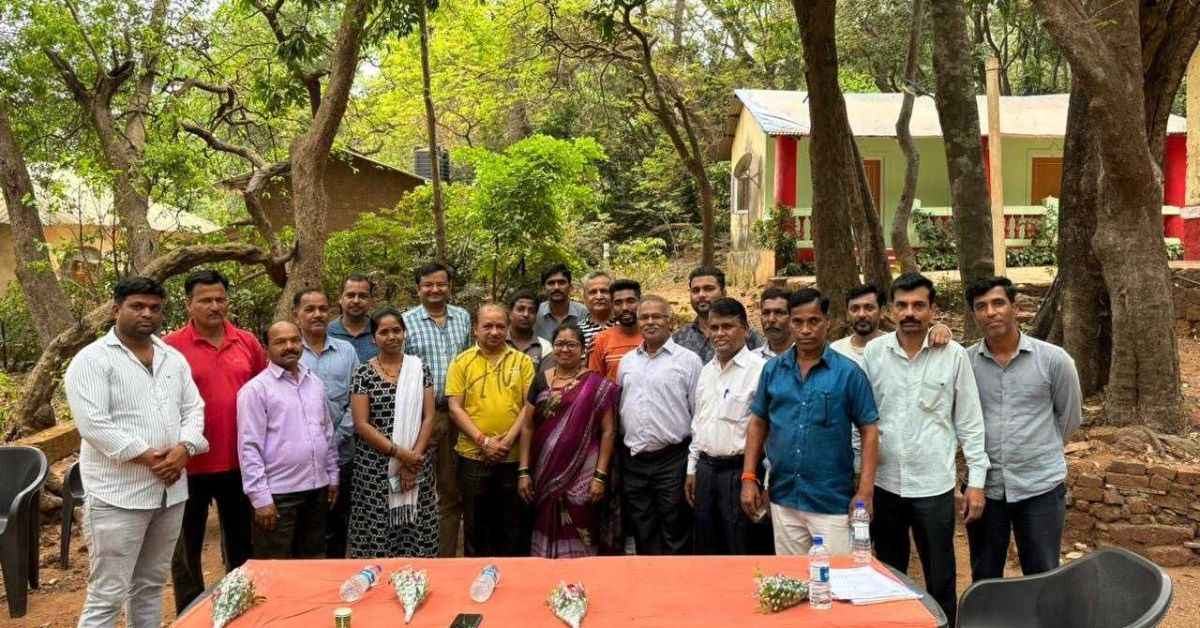
Following the success of the pilot project between 5 December 2022 and 4 March 2023, where the Municipal Council deployed seven e-rickshaws to ferry over 50,000 people, the SC allowed the experiment to continue. However, in January 2024 a corollary was added that the current hand-rickshaw-pullers would operate the e-rickshaws.
This has since been a boon for the community in Matheran.
Now, you can step in to be their ray of hope while also doing your bit to champion alternate energy options. This will ensure that the beauty of a hill station that evokes nostalgia in so many of us is preserved.
The project falls under the ambit of Rang De’s many social undertakings. Started by Ram and his wife, Smita, in their forties — who moved back to India from the UK in 2008 — the peer-to-peer model invites individuals to invest in farmers, artisans, entrepreneurs and small business owners from rural communities. People can choose to invest as much as Rs 100 or more into a state, fund or individual of their choice.
What’s better? The loan is transferred to the investee’s account and is repaid with interest!
Invest in an e-rickshaw and help hand rickshaw pullers today!
Bankers to the underbanked
In 2006, the world erupted with admiration for Muhammad Yunus who was awarded the Nobel Prize for Peace. Known as a “banker to the poor”, it was Yunus’ revolutionary microcredit system that earned him the moniker. According to an article in BBC, the endeavour is estimated to have extended credit to more than seven million of the world’s poor, most of them in Bangladesh.
What adds to the significance of Yunus’ work is that the people he helped are those that traditional banks turned their backs on. A high risk of default, coupled with lending tiny loans at reasonable interest, formed the basis for the banks’ reluctance.
But, the way Yunus saw it, all these people needed was a chance. And so, the social entrepreneur went on to start a full-fledged bank for Bangladesh’s poor, The Grameen Bank, which saw the poor as creditworthy.
The design of this internationally-acclaimed model made it to Yunus’ book ‘Creating a World Without Poverty’. And when Ram laid hands on it in 2006, he couldn’t put it down.
“According to the ‘Little Data Book on Financial Inclusion 2022 (a pocket edition of the Global Findex Database), India is behind Bangladesh when it comes to access to credit,” Ram points out. “Add to this the high rate of interest and we began to ask ourselves why not do something similar in our country.” The couple saw a P2P model as having a dual vantage — it would be profitable and sustainable for communities.
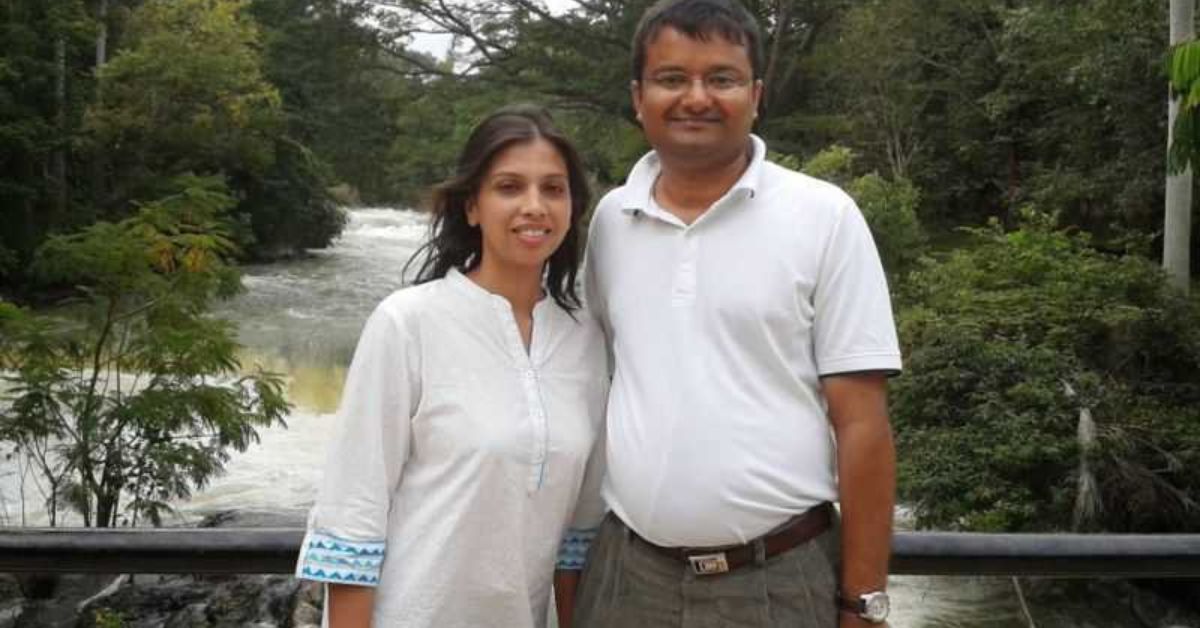
“We saw it as bridging the empathy gap that we have in the country,” he adds. “Not only would the micro-credit system be a great alternative to traditional credit, but it would also allow, unlike other investments, for the person who is “investing” to know who he is helping.”
“It would help them witness in real-time the impact that they are having on someone’s life and livelihood,” he says.
The couple believed something “magical” would come out of such an initiative; something that surpassed money. As they look back on the journey of disbursing over Rs 154,22,50,680 in the 16 years that they have been active, they say it has exceeded their expectations of the power of a project of this scope.
And one of their most recent projects is empowering the rickshaw community in Matheran.
Not a crowdfunding campaign
Simply put, the ‘Matheran e-Auto Rickshaw Fund’ lets you invest in hand-rickshaw-pullers in Matheran, enabling them to upgrade to e-rickshaws and earn higher incomes.
This credit will ensure them a life away from the drudgery and hard work of pulling rickshaws throughout the day, on the mud roads of Matheran. The money will be channelled towards them buying e-rickshaws and your investment, Ram says, can enable a monthly income of Rs 30,000 per month for these hand-rickshaw-pullers.
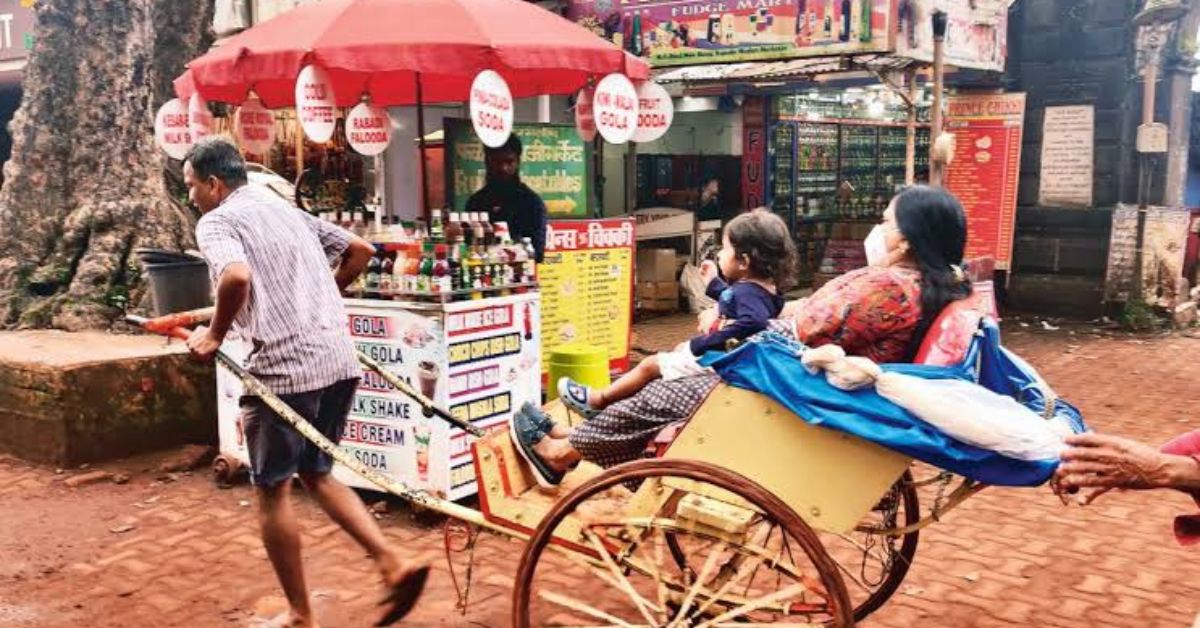
But, how does this work?
“Once an individual invests in a certain project on our platform, the money is sent to the investee via a regulated platform,” Ram explains. He adds that Rang De is regulated by the Reserve Bank of India and has their NBFC-P2P (Non-Banking Financial Company) licence in place.
“This allows any Indian to lend money to a fellow Indian over the internet through our platform,” he adds.
Once the money is invested, a lot ensues behind the scenes for the funds to meet its purpose. In this particular project, Rang De has partnered with Tisser — a not-for-profit trust that is providing sustainable livelihoods, income opportunities, and access to professional rural craftspersons in India through professional training, innovative models, and technological solutions.
Tisser identifies the rickshaw-pullers who wish to upgrade to e-rickshaws, helps them with finances (they have raised over Rs 14,00,000) and ensures that these rickshaw-pullers repay the loan with interest every month over 30 months. Ram adds that another supporting arm of the project is Caring Friends — a Mumbai-based philanthropic group that acts as a bridge between NGOs and donors.
The role of each of these is crucial. As Ram sees it, championing a micro-credit system is vital now more than ever. “Only 12.8 percent of India’s eligible population has access to formal credit,” Ram highlights.
“Making loans accessible to a credit-starved country is what we started out intending to do. Through the years a steadfast focus on this social mission coupled with us staying our course, has built trust in our social investors.” And what’s amazing is that these investors can witness impact at scale.
“Imagine! A person living in Mumbai can invest in someone who is in Matheran. What’s more, is that the RBI gives the person who is borrowing money the same status as he would get if he were borrowing from a bank. He will get a credit score in all the four credit bureaus in India,” he clarifies further.
As for how the Matheran project strikes a chord in him, Ram says, “It is liberating to know that a practice (hand-pulled rickshaws) that has been in existence since the British era will be put to an end.” He sees this as a classic textbook example of blending many social factors — engaging communities, protecting the environment, and creating dignified livelihoods — into one.
As for the road Rang De is traversing, Ram says it is a long one. “We want to impact a million social investors and households that the investment is helping.”
Meanwhile, Shinde who now watches with happiness as his friend drives an e-rickshaw, feels proud. “I am happy I could do my bit for the locals of Matheran, who take great pride in their work.”
Invest in an e-rickshaw and help hand rickshaw pullers today!
Edited by Padmashree Pande.
If you found our stories insightful, informative, or even just enjoyable, we invite you to consider making a voluntary payment to support the work we do at The Better India. Your contribution helps us continue producing quality content that educates, inspires, and drives positive change.
Choose one of the payment options below for your contribution-
By paying for the stories you value, you directly contribute to sustaining our efforts focused on making a difference in the world. Together, let's ensure that impactful stories continue to be told and shared, enriching lives and communities alike.
Thank you for your support. Here are some frequently asked questions you might find helpful to know why you are contributing?






